For a panda, rubbing horse manure all over itself maybe doesn’t seem as strange as it sounds to us. Pandas tend to do that – rub interesting-smelling items on themselves.
But it’s also possible pandas learned a little something in the process. Horse manure has natural compounds that may help pandas feel warm, according to new research in the journal Proceedings of the National Academy of Sciences.
The paper, published in December, explains that giant pandas in the Foping National Nature Reserve in central China preferred the freshest manure. They also discovered that pandas also rolled in fresher manure on cold days.
“Pandas not only frequently sniffed and wallowed in fresh horse manure, but also actively rubbed the fecal matter all over their bodies,” the paper notes. “Animals might actively seek and utilize potential chemical resources from their habitat for temperature acclimatization.”
Naturally Curious
Before diving into the scientific properties of the warming qualities of horse poo, let’s first talk about panda bears.
Pandas don’t hibernate, instead they wander the bamboo forests of southcentral China year-round. They’re already well adapted to live in relatively cold environments, according to Rebecca Snyder, director of conservation and science at the Oklahoma City Zoo and who oversaw giant pandas at the Zoo Atlanta for 15 years.
“They have a really dense, wooly coat that sheds moisture and is thick and insulating,” she says. “Their paws are hairy, and they have hair between their toes to protect their feet.”
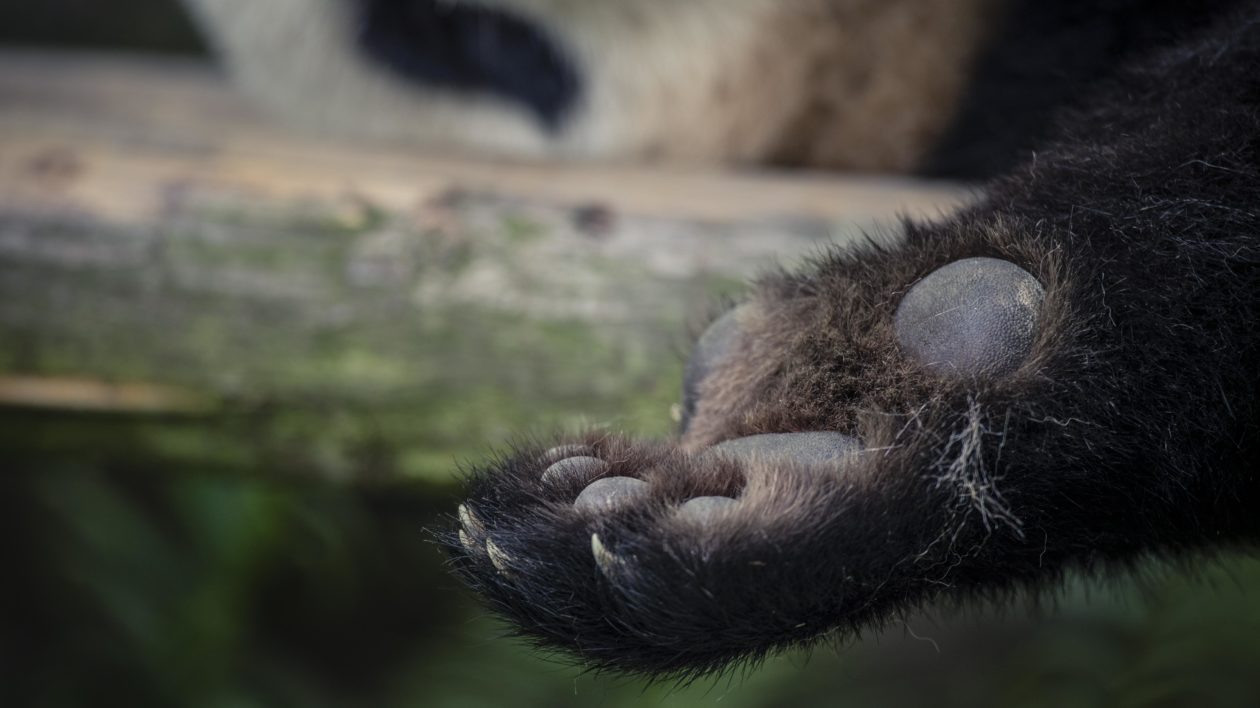
Once placed on the International Union for Conservation of Nature’s endangered list, they were downgraded in 2016 to vulnerable because of habitat restoration and a drop in poaching.
They would not have evolved with horses, or the ability to roll in manure to make themselves feel warmer and cozier on the inside, but perhaps that isn’t the point.
Giant pandas held in the nature reserve had been seen for years rolling in and rubbing horse manure across their bodies. While plenty of species roll in something humans would consider stinky (think about your dog flopping over on a dead, rotting fish), researchers at the Chinese Academy of Science’s Institute of Zoology noticed that the bears seemed do take advantage of the manure mostly when it was colder outside – between -5 and 15 degrees Celsius (or 23 to 59 degrees Fahrenheit).
Their hypothesis? Perhaps a chemical compound in the manure made the bears feel warmer. So they isolated the compounds found in fresh manure, called beta-caryophyllene and beta-caryophyllene oxide, and added them to hay at the Beijing Zoo.
The pandas at the zoo rubbed hay treated with those compounds on their bodies also.
Researchers also found that mice had increased cold tolerance when treated with those compounds.
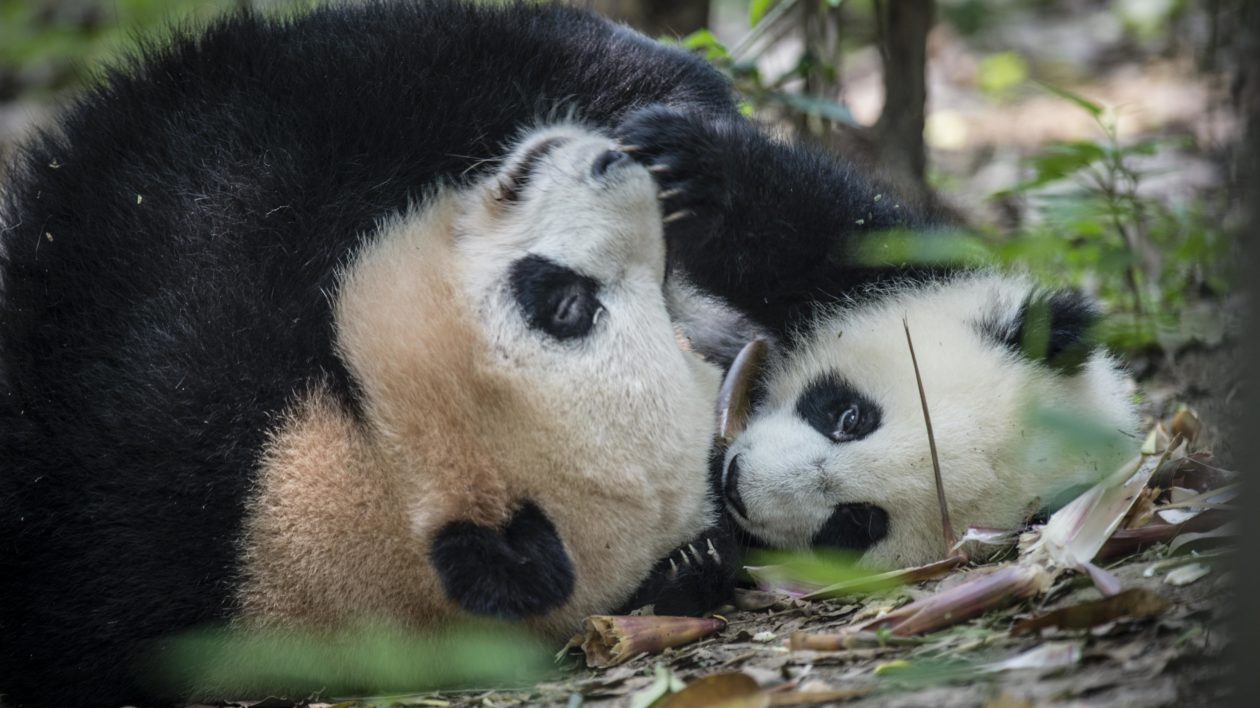
Blocking the Cold
Fan Yang, a biophysicist at the Zhejiang University School of Medicine agreed with the authors’ logic. “The authors ‘provided solid evidence from the molecular level to elegantly explain the unique behavior,’” he told the American Association for the Advancement of Science’s Science Magazine.
He likened it to humans sweating while eating chili peppers. The capsaicin in the peppers makes us feel warmer.
Malcolm Kennedy, a natural history professor at the University of Glasgow, told Science that he’s not so sure. It would be dangerous for an animal to mask its true temperature. Our ability to determine if we’re hot or cold (whether humans or pandas) is our first line of defense against overheating or hypothermia.
Snyder, who was not involved in the study, understood the point, and wonders if the bears simply use the manure to make themselves feel a little better – not necessarily to be warmer. Then again, with pandas as with dogs, humans, pigs or even elk, it may not always be obvious why one scent or substance is preferred over another.
Snyder worked with giant pandas at Zoo Atlanta that would strongly prefer one smell over another. One female liked the scent of cinnamon. The panda would pick up any object that had cinnamon scent on it and rub on her head and body.
“What I always wondered, but never could test, is perhaps they would do it because it’s a way for them to smell like their home range,” Snyder says. “If there’s something strong smelling in their home range, and they smell like it, it would be a way for other pandas to identify where they’re from.”
While some of this will likely remain a mystery, what researchers do now know is that horse manure contains warming properties, and those giant pandas that have access to manure like to smear it around when they’re cold.
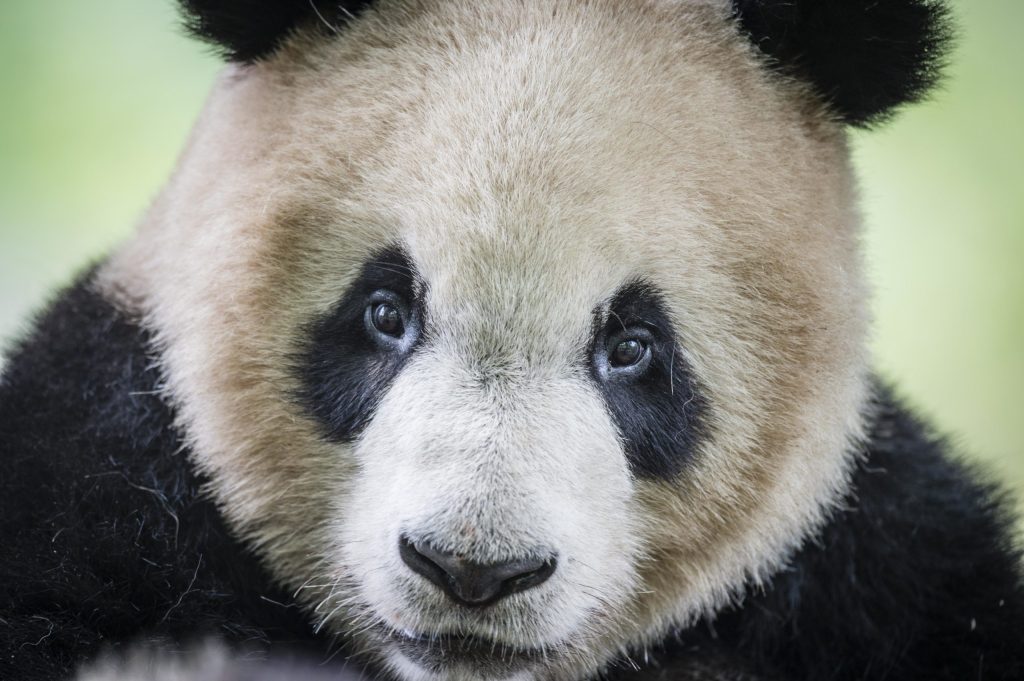
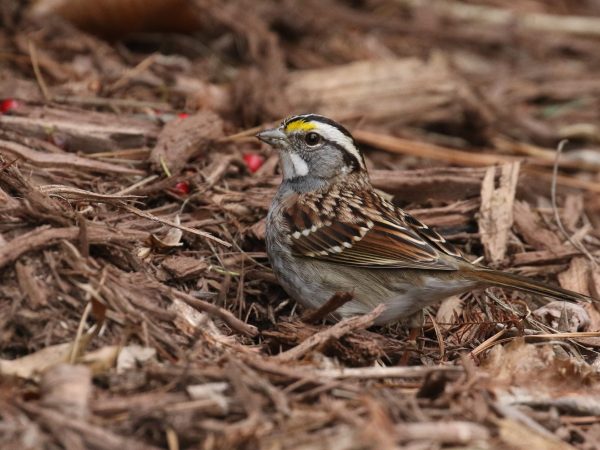
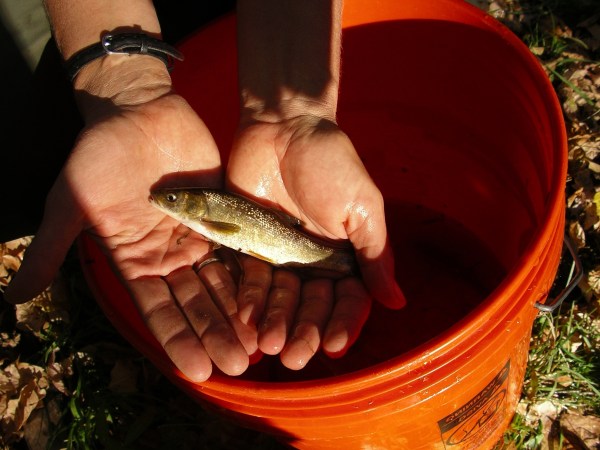

Makes me just want to run out and give a panda a great, big hug! ?